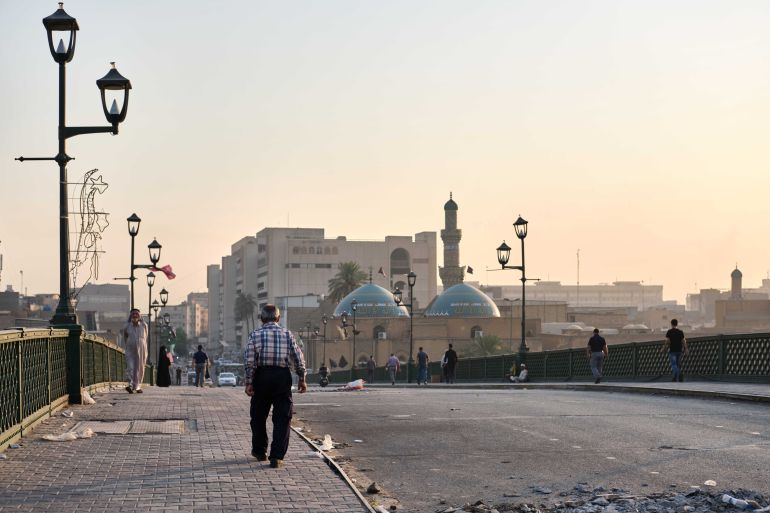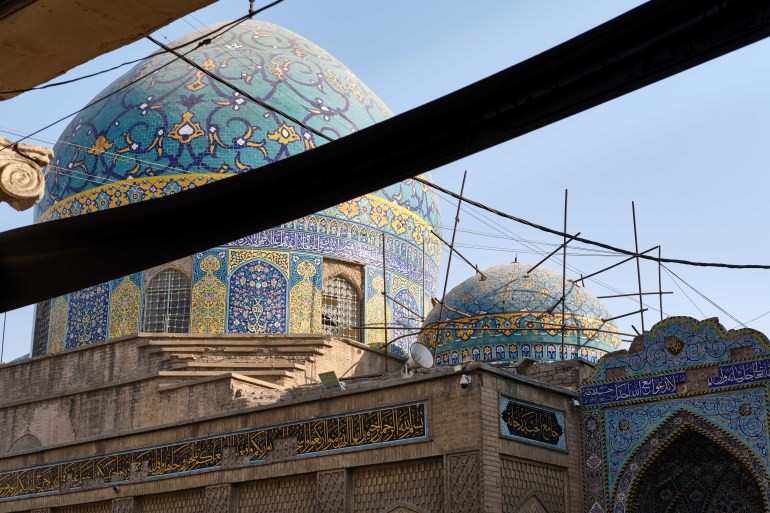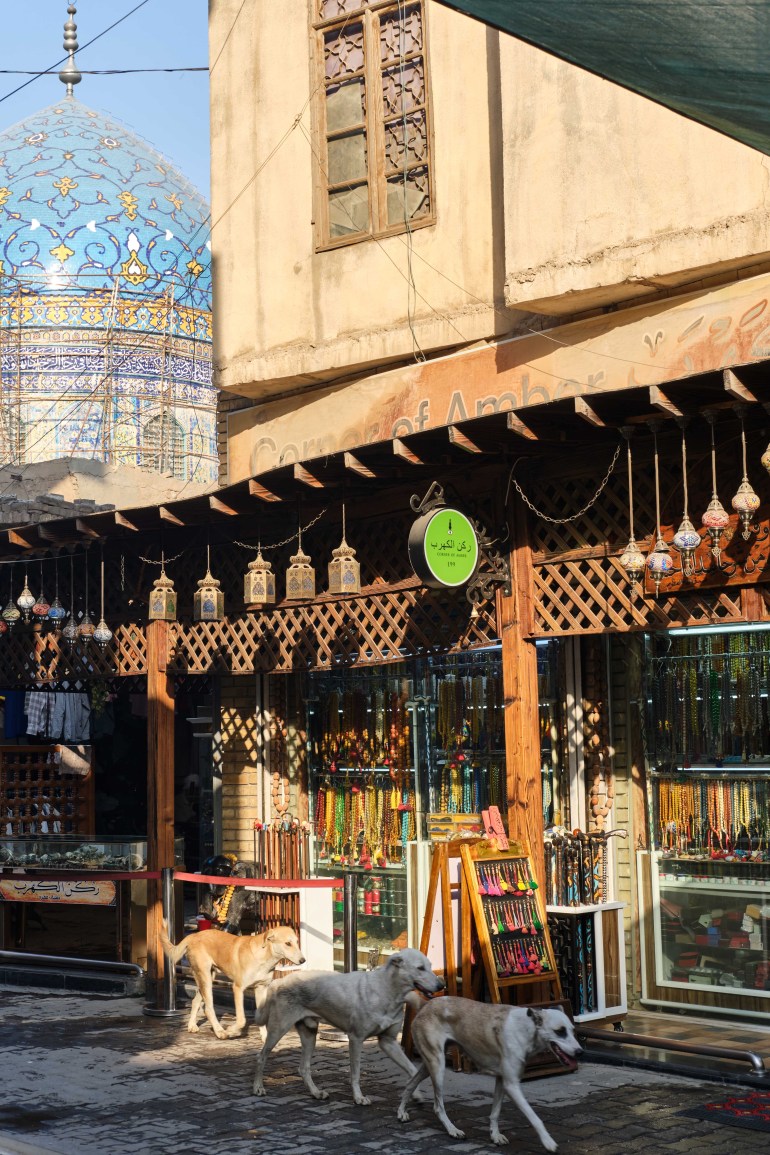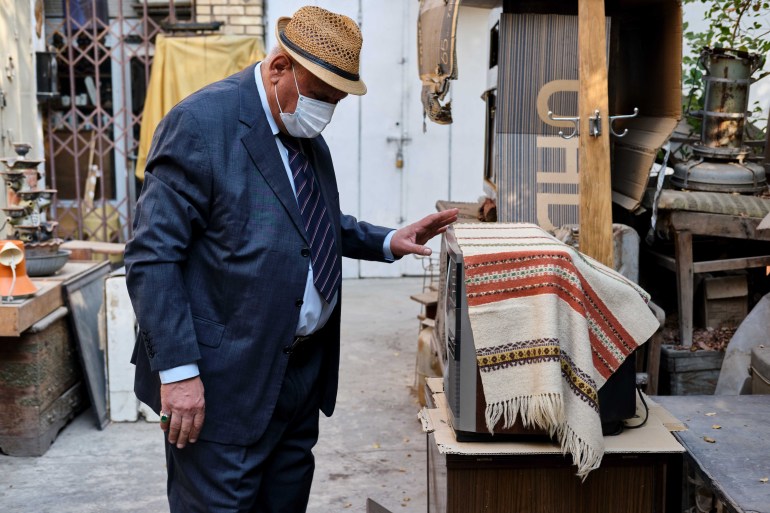An elegy to Baghdad

In January 1948, flocks of Iraqi students, workers and Baghdad’s destitute poured into the streets of the capital to protest against the Portsmouth treaty amid deteriorating living conditions. The treaty, in the words of Palestinian historian Hanna Batatu, was a disguised extension of the Anglo-Iraqi Treaty of 1930 which “virtually reduced Iraq into an appendage of the British Empire”.
Many protesters, including the students who played a key role in what came to be known as al-Wathba Uprising, were killed, wounded and arrested in a relentless campaign of repression that culminated in a bloody crackdown on January 27. That day, security forces opened fire on protesters on a bridge over the Tigris river, later to be named Jisr al-Shuhada (Martyrs Bridge) in memory of the fallen.
Keep reading
list of 4 itemsRwanda genocide: ‘Frozen faces still haunt’ photojournalist, 30 years on
Underground tunnels found in Israel from Jewish revolt against Romans
Lost in Orientalism: Arab Christians and the war in Gaza
When the guns fell silent, “the bleeding of the crowd was terrible. Bodies lay all over. Some were entangled in the iron of the bridge. Others had dropped into the river below and were carried along by the current,” writes Batatu.
Between 300 and 400 protesters were killed and wounded that day in Baghdad. Among the victims was Jafar, the youngest brother of Iraq’s venerated poet Muhammad Mahdi al-Jawahiri.
On the morning of the third day of mourning, al-Jawahiri locked himself inside a small room in al-Hayder Khana neighbourhood and wept with “unprecedented howling”.
With the image of Jafar covered in blood seared into his memory, al-Jawahiri wrote an elegy he recited that afternoon from the rooftop of al-Hayder Khana mosque, near Jisr al-Shuhada, to a large crowd that had gathered to mourn the dead:
“Do you know or do you not know
that victims’ wounds are a mouth?
A mouth unlike that of an impostor
nor like he who implores.
It shouts at the poor and hungry:
shed your blood and you shall be fed.
And yells at the subservient:
humiliate the villains and you shall be honoured.”

On a recent walk to downtown Baghdad, as I crossed Jisr al-Shuhada, I thought of these events of 1948. I looked around and saw that the conditions today are no different than those that sparked al-Wathba Uprising: poverty, negligence, greed, and injustice.
Impoverished elderly were sitting on the sidewalk. Like robots, they stared ahead, extending an empty palm and mumbling pleas for help. Plastic waste littered the banks of the river. Government SUVs with tinted windows lined up the sidewalks, while obese guards snarled at the tuk-tuk drivers who tried to ferry passengers over the one-way bridge for a few banknotes.
In Iraq, some are above the law, others are crushed by its enforcers.
But just like 1948, the public would not take it. Since October 2019, the downtrodden youth have taken to the streets once again to protest political and economic oppression. This time, public anger poured out on another bridge – Jisr al-Jumhouriya (the Republic Bridge), a 30-minute walk from Jisr al-Shuhada.
It is there that last autumn, security forces relentlessly fired live rounds and skull-piercing tear gas grenades directly at protesters.
I used to enjoy strolling on Jisr al-Jumhouriya, too. I would walk across the bridge, sneaking a look at Abu Nawas street flowing gracefully along the riverbank, before entering al-Tahrir Square where Iraqi sculptor Jawad Salim’s Freedom Monument is stretched against a background of palm trees.
The bridge, however, was closed late last year to safeguard corrupt politicians occupying luxurious palaces in the 10 square kilometres of confiscated land known as the “Green Zone”.

As I walked across Jisr al-Shuhada, I thought about these barriers and exclusions, about what had become of my city. I wandered through the zigzag alleys of Jadid Hasan Pasha neighbourhood near al-Hayder Khana mosque, looking at the antiquated buildings.
The distinctive shanasheel, the balconies decorated in beautiful wooden latticework, are rapidly vanishing. Some buildings have been demolished to make way for ugly commercial edifices erected in complete disregard of municipality regulations with the help of hefty bribes. Others have been left to decay, leaning on adjacent buildings on the verge of collapse.
As I walked through the narrow alleyways, scrawny stray dogs roamed, while unmasked men served kebabs to their unmasked clientele in squalid restaurants. Outside, on the sidewalks, old men puffed on their cigarettes and sipped istikanat of sweet hot cardamom tea, sitting quietly by stagnant sewage.
I kept thinking that every mayor of Baghdad placed in charge by his or her corrupt party since the 2003 US invasion should be taken to court for the ghastly cannibalisation of the city. But is there justice in Iraq? Do the ruling crooks even know these areas and people exist?
I soon reached Souq al-Haraj. On the dusty shelves of its antiquities shops, Baghdad’s history was on sale. When Baghdadi families escape war and violence enabled or orchestrated by the post-invasion political elites, they sell their belongings for a song. One can find anything in Souq al-Haraj: From vintage Swiss watches, gramophones and “Made in Iraq” soap bars, to porcelain tableware and telephone directories from a time when listed names did not so easily become just a number in some casualty toll.

Across al-Rasheed street just off al-Maidan square, scavengers sat on the ground selling everything from second-hand power adapters to worn flip-flops and ancient radios. A scene befitting the reports of poverty pouring out of our computer screens, refuting a false image of stability and prosperity often propagated by the state and its rich media parrots.
Soon there will be nothing of old Baghdad left to see or sell, I thought to myself.
“They told me
that they had demolished Sindibad Cinema
What a loss!”
The late Iraqi poet Sargoun Boulous wrote these lines, lamenting the decay of an iconic film theatre in Baghdad.
I wonder what he would say about today’s Iraq if he had been alive, if he could amble down the sidewalks of downtown Baghdad, where no smile adorns the faces of the little girls who sell chewing gum that no one buys and desperate youth push handcarts past the homeless, who hallucinate in damp corners, unseen.
What lines of pain would he write?
The views expressed in this article are the author’s own and do not necessarily reflect Al Jazeera’s editorial stance.
